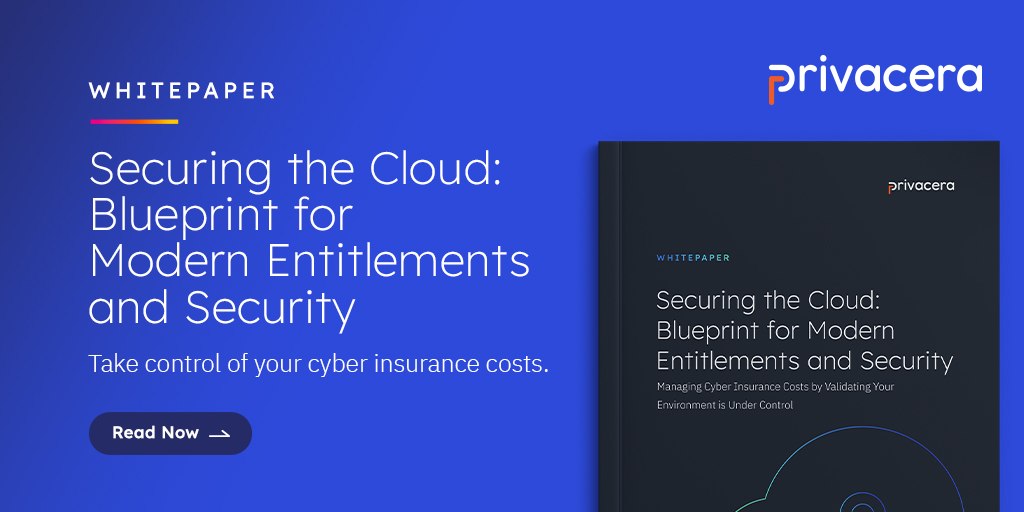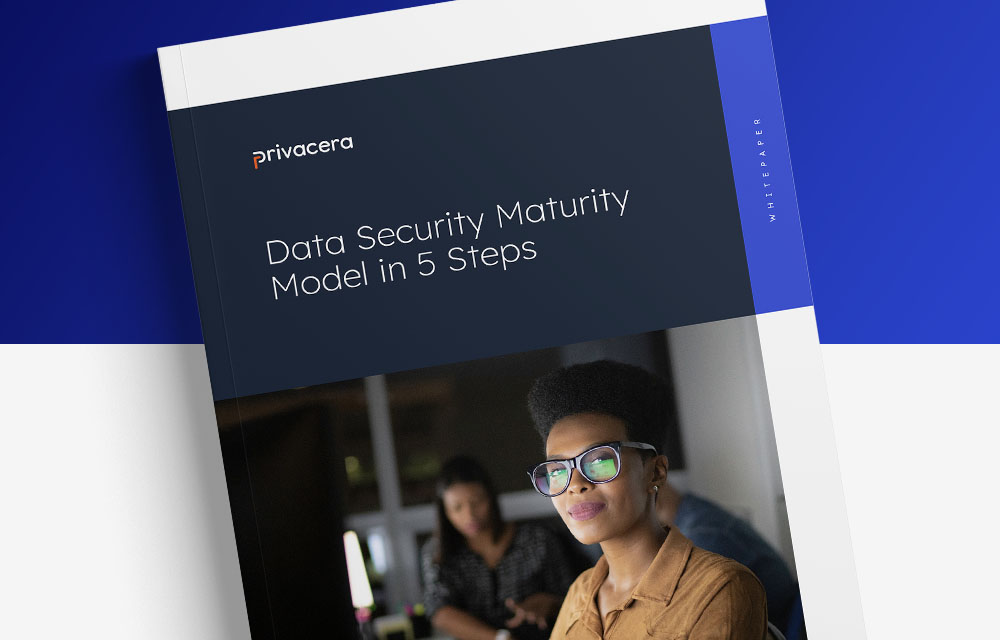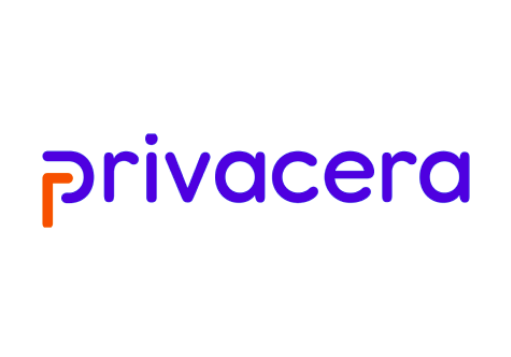Data security is an important concern in today’s digital environment. With the rise of cloud computing and mobile technologies, protecting sensitive information and maintaining data integrity, including the security of big data, is becoming increasingly difficult. Modern data security governance provides an organized approach to these challenges, helping organizations ensure data compliance and gain faster insights into their business operations. This article will give a high-level overview of modern data security governance and its benefits for businesses.
Data Access and Security is a Critical Balance
Before we delve into the complexities of balancing data access and security, let’s take a closer look at “what is data security?”
Data security is the process of protecting digital data from unauthorized access, use, disclosure, disruption, modification, perusal, or destruction. It is a critical component of an organization’s security policy and is designed to ensure data confidentiality, integrity, and availability. Data security measures can include physical security, encryption, access control, authentication, and other security controls.
Modern data security governance offers organizations a range of benefits, including faster insights into their business operations. By providing clear data access and security guidelines, organizations can ensure their data is protected while allowing for the rapid analysis of data for business insights.
In addition, modern data security governance can also help organizations stay compliant with industry regulations and standards. Organizations can remain compliant and avoid costly legal penalties by adhering to established data security protocols.
The Reality of Data Security and Access in Most Companies
Despite the importance of modern data security governance, many organizations still struggle to balance data access and security. Below is a quick summary of issues and the problems they create.
Access to data is overly restrictive:
- Data security becomes a bottleneck.
- Business cannot achieve objectives.
Access to data is too open:
- Data security becomes a liability.
- Business is exposed to high risk.
Access is a combination of both:
- Some data is overly restrictive.
- Other data is too accessible.
Unfortunately, a combination of access protocols is currently the state of most organizations.
“Organizations continue to struggle to become data-driven, with only 26.5% reporting having achieved this goal, and only 19.3% reporting having established a data culture.” NewVantage Partners, Data and AI Leadership Executive Survey 2022
“Through 2025, 80% of organizations seeking to scale digital business will fail because they do not take a modern approach to data and analytics governance.” Gartner: The State of Data and Analytics Data Governance 2022
Data Security Is the “Last Mile” in Data Governance
Data security is the final step in a data security platform because it is the only way to ensure data is secure and that the data remains confidential. For this to happen, something known as data stewardship must happen. It involves the collection of practices that ensure an organization’s data is accessible, usable, safe, and trusted.
Let’s take a closer look at data stewardship:
Preparing and organizing data:
- Data quality.
- Data classification (catalog).
- Data lineage.
Data Security
- Sensitive data discovery.
- Fine-grained access control and audits.
- Masking and encryption.
Data security is also critical for protecting the privacy of customers, clients, and other stakeholders. Network data security breaches and cyber-attacks can cause significant damage to an organization’s reputation, so it is essential to ensure that data remains secure and confidential. When a clear framework for data security and access has been created, organizations can ensure their data is secure and the privacy of customers and stakeholders is protected.
Data security is also essential for ensuring data is available only to authorized personnel. Without a clear framework for data access and security, it can be difficult to ensure data is used only for its intended purpose and not accessed by unauthorized individuals. An effective data governance framework for access and security allows businesses to keep their data secure as well as make it accessible to only those granted permission.
Balancing Specialized Data and Analytics Services With Horizontal Data Security Control Plane
Organizations must also balance their need for specialized data and analytics services with the need for a horizontal data security control plane. As organizations move their data and analytics operations to the cloud, they must have adequate data security protocols and processes in place to protect their data. When forming a horizontal control plane, companies can ensure their data is secure and their data remains confidential and accessible only to authorized personnel.
Holistic Data Security Requires Collaboration To Fix Strategy Gaps
Organizations must realize data security requires collaboration across the business. Data security is more than just implementing data access and security protocols; it requires a holistic approach that encompasses people, processes, and technology.
Organizations must work together to identify any potential strategy gaps and ensure data security management is overseen by the right people. By taking a collaborative approach to data security, all members of the team, from the Chief Information Security Officer (CISO) and the Chief Data Officer (CDO) to the Information Technology (IT) department, must create a cohesive data security strategy.
Data Security and Complexity Create Friction, Reducing Data Usability to 15%
Data security is becoming increasingly complex as organizations move their data and analytics operations to the cloud. As organizations try to protect their data from potential threats, they must also ensure data is accessible and usable by authorized personnel. Unfortunately, many organizations are finding their data security protocols are making it difficult for authorized personnel to access and use the data, resulting in only 10 – 15% of the data actually being usable. Organizations must ensure their data security protocols are not too restrictive and are not preventing authorized personnel from accessing and using the data.
Data Governance Evolution
The ultimate goal is to deliver true data democratization with strong security and governance guardrails. From a security governance perspective, we see organizations varying between a centralized approach that delivers strong security, but frankly limited business and analytical flexibility and agility, to decentralized approaches.
For many, data governance has evolved from being a process dictated by an individual or small group to being delegated and decentralized across an organization. Initially, a single person or group of people was responsible for setting data policies and making decisions about how data should be used and protected. As organizations grew in size, it became necessary to delegate the responsibility of data governance to different departments.
Decentralized data governance is where each department or team is responsible for its own data policies, processes, and decisions. This decentralization gives organizations the flexibility to customize their data security governance policies to better meet their specific needs while also maintaining compliance with applicable laws and regulations. Additionally, by decentralizing data governance, organizations can ensure data is being used responsibly and securely while still promoting collaboration and governed data sharing.
However, decentralized approaches, which can provide analytical agility at functional or business-unit level, inevitably create silos, which can compromise security and will also inhibit company-wide flexibility and agility.
The ultimate goal should be a shared model where data stewardship and ownership is delegated to the people that understand the data and how to use it, accompanied by a security and governance framework that provides guardrails and consistency across the enterprise.
Leveraging Privacera to Securely Utilize All Data
Organizations must leverage tools such as Privacera to securely utilize all their data and ensure data remains protected and compliant with industry regulations and standards. Privacera provides a platform for organizations to monitor and manage their data security, helping ensure data remains secure and the data privacy and security of customers and stakeholders are protected. By leveraging Privacera in concert with other data security solutions, organizations can ensure their data is secure and that they are able to gain faster insights into their business operations.
Data democratization realized with Privacera customers able to:
- Securely share data across sources.
- Securely share data across hybrid environments.
- Delegate data access granting to data/business owners.
- Grant access for specific projects.
With secure data democratization possible, Privacera customers journey closer toward their data-driven goals, with some customers experiencing:
- 5X their ROI from an automation-based increase in operational efficiency and significantly reduced complexity.
- 95% acceleration onboarding new data and users.
- 1000X reduction in access policies, eliminating complexity and minimizing security risks.
Conclusion
Modern data security governance is essential for organizations that want to ensure data compliance and gain faster insights into their business operations. By establishing a clear framework for data access control and security, organizations can ensure their data is secure while still allowing for rapid analysis and insights. Finally, organizations must recognize data security requires collaboration across the business and that data security protocols must be carefully designed to ensure data usability.
See first-hand what modern data security governance looks like. Request your live demo today.





